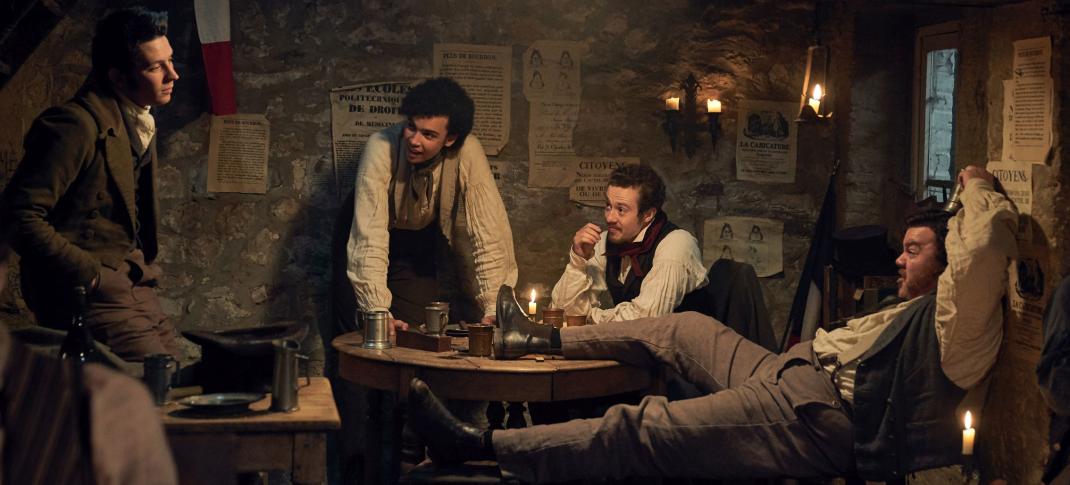The Real History Behind 'Les Miserables' Episode 4: 1831

The new Masterpiece adaptation of Les Miserables contextualizes the popular story in France's larger history. Our companion series runs down the history behind the gritty new version of Les Mis and asks how accurate each week's installment is. This week, we take a look at the series' fourth episode.
Enjolras and The Revolutionaries
We'll talk about this more next week when the Barricades go up, but to understand author Victor Hugo's take on the June 1832 Paris Uprising, one has to realize that he himself wasn't actually there for it. Much of his inspiration was taken from the 1848 revolution, in which he did participate. The two are connected. The failed uprising of 1832 left sparks all over the place that eventually became the blaze of 1848.
The July 1830 revolution which occurred two years earlier had removed the Bourbon monarch Charles X, but replaced him with the more liberal-leaning Louis-Philippe. In the end, this meant no one was happy. Democracy wasn't achieved, Monarchs still ruled. There were three uprisings in a row between December 1831 and the June of 1832 revolution that followed, sparked by food shortages and a widespread outbreak of cholera, with republicans, like Enjolras, creating secret societies to plan more disruptions.
But here's the thing - Hugo wasn't on the side of the republicans. So if the revolutionaries seem a bit like a bunch of rich kids playing at war with no sense of how bad it could be? That's Hugo's royalist leanings showing through.
The Gorbeau Tenement & Housing In Paris
The Gorbeau tenement is a real place in Paris. Unfortunately, it's not the one Hugo came up with. In his book, Gorbeau exists in a Faubourg, a suburb of Paris where the poorest residents were pushed off to, with the worst landing in the "barrieres," a.k.a some of the oldest parts of the city. Unsurprisingly, these areas were also some of foulest and least taken care of. Gorbeau is supposedly on the edge of one of these barrieres. They had a bad reputation, mostly for crime and destitution, both of which are fulfilled by the Thénardiers and their gang. (And also by Eponine and her dirty feet.)
The reality though is that the real crime didn't take place in those areas, because there was nothing to rob. These barrieres were like some surburbanites today picture city slums, hives of scum and villain, which they've never set foot in and that, subsequently, have no idea what living in is like. Hugo, who was very well-to-do, is falling into this trap with his descriptions of Gorbeau and the surrounding area.
Why Is Marius So Noncommittal To The Revolution?
As stated above, Hugo wasn't on the side of the revolutionaries. When the revolution he did take part in in 1848 came around, he was on the side of the royalists. This is one of the significant reasons Marius sometimes feels like a dilettante, not committed to the revolution as much as he sort of slums around it in until he pulls himself together and makes up with dear old granddad down the line.
Hugo may have written about these characters, and cared very deeply about the poverty and unfairness of the justice system. However, when push came to shove, he was as tepid about overthrowing the status quo as Marius.




